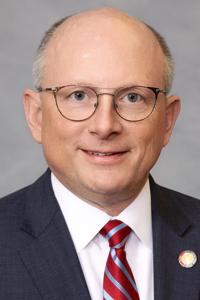(The Center Square) – Making the age 21 to buy hemp products is included in a regulations proposal at the North Carolina General Assembly.
Rep. Dr. Tim Reeder, R-Pitt
The Protect Children from Cannabis Act, also known as House Bill 680, pushes for oversight and accountability of the industry. Rep. Dr. Tim Reeder, R-Pitt, authored the legislation alongside Republican Reps. Allen Chesser of Nash County and Tricia Cotham of Mecklenburg County.
The bill says between 2019 and 2023 emergency department visits for tetrahydrocannabinol, the psychoactive component determining whether hemp or marijuana, rose 600% for youth ages 17 or younger. For 18- and 19-year-olds, the rate was more than 1,000%.
“Evidence also shows,” the bill says, “that cannabis use during adolescence and young adulthood may harm the developing brain, and youth who use intoxicating cannabis can experience multiple negative impacts such as problems with memory, learning, school and social life; impaired driving; the potential for addiction; and increased risk of mental health issues, including depression, anxiety, psychosis, schizophrenia, and suicidal behaviors.”
Alcohol Law Enforcement will have authority for enforcement, the proposal says. Licensing requirements will be in place for sellers.
Hemp was declassified as a controlled substance in 2022. The concentration of delta-9 THC, for North Carolina law purposes, determines if the plant cannabis sativa is hemp or marijuana. More than 0.3% is illegal marijuana; less than 0.3% is hemp.
Oils, gummies and topicals are sold statewide.















































